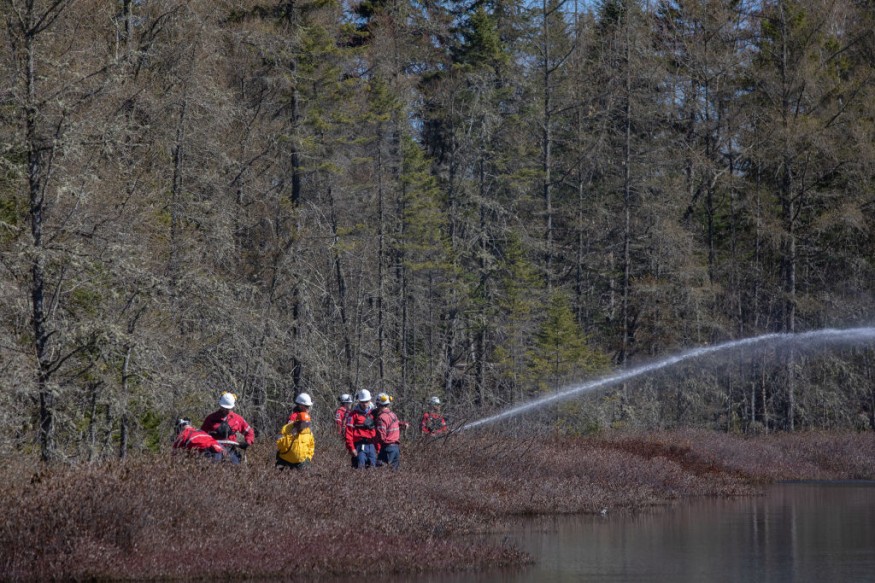Experts revealed that the wildfires in Canada last year pumped more carbon dioxide than India's burning of fossil fuels.
Researchers from the World Resources Institute and the University of Maryland calculated the destructive effects of the blaze in Canada in 2023, which lasted for months and reached the air around other nations across the globe.

Record Breaking Effects On People, Nature
In the study posted in the Global Change Biology, experts said that the Canadian wildfires in 2023 were record breaking as it had some wide-reaching impacts on people, nature, and even the climate.
Researchers said that the extreme heat and low rainfall, which are often associated with climate change, resulted in the unprecedented forest fires that released enormous amounts of carbon.
The latest study utilized some data as regards the fire-driven tree cover loss as well as on the forest carbon fluxes. The figures were used to estimate the total extent of stand-replacing forest fires as well as their associated carbon emissions.
Experts discovered that the Canadian wildfires last year burned nearly 7.8 million hectares of forest. This figure accounted for over a quarter of all the tree losses across the globe.
Moreover, the study also showed that the forests affected by these huge fires emitted nearly 3 billion tons of CO2. This was about 25% more carbon than all the primary tropical tree cover loss during that year.
Scientists added that the three billion tons of CO2 was roughly six times the annual average from all the primary tropical tree cover loss in 2023.
Worrisome Forest Loss
The study further pointed out that the loss of that much forest is a huge deal, branding it as worrisome.
According to experts, the forests will eventually grow back and sequester carbon in doing so, however, the process will be tedious and it could take decades at a minimum.
Researchers also underscored that these results have important implications for global carbon budgets as the emissions from these wildfires will largely be excluded from official greenhouse gas reporting to the United Nations.
The study explained that under the guidelines from the Intergovernmental Panel on Climate Change, countries can designate a portion of their lands as "unmanaged.'''
They can state this under the assumption that they are not subject to direct human influence, meaning, they could not be the focus of Paris Agreement goals to limit human-induced greenhouse gas emissions.
Experts mentioned that alhough forest fires in Canada are a common occurrence, the climate change has been leading to fires that are larger and more frequent when compared to what had transpired in past decades.
In parts of Canada and other northern latitudes, land surface temperatures are warming at rates roughly double the global average, with higher temperatures driving more extreme fire weather and longer fire seasons globally.
With climate change expected to rise figure of global burned area by 30-50%, the timely and accurate information about the full extent of forest fire dynamics is needed to assess impacts on people, nature, and climate.
Related Article : Day 5 of Largest Wildfire in Greece Raises Death Toll to 20 as Firefighters Tally 355 Forest Fires
© 2025 NatureWorldNews.com All rights reserved. Do not reproduce without permission.





